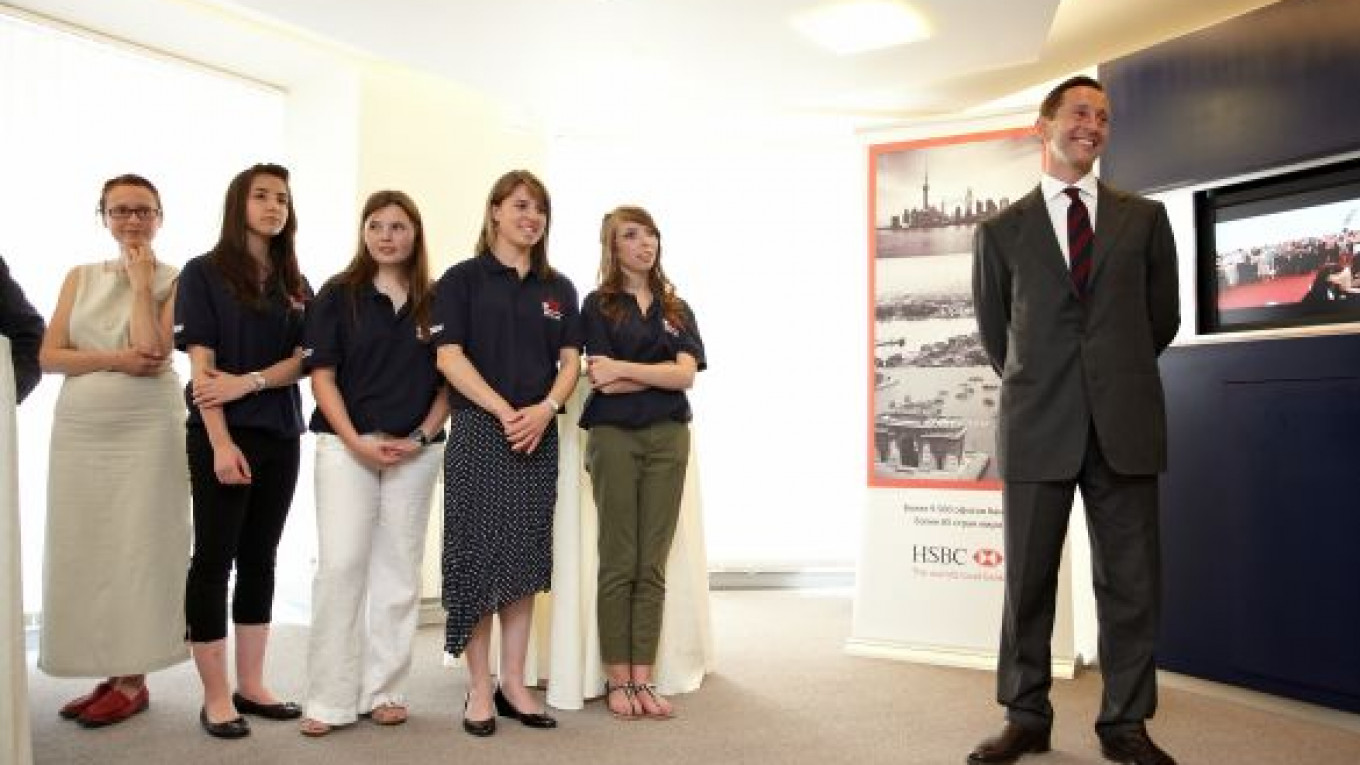ST. PETERSBURG — Ten British schoolchildren visited St. Petersburg as part of a program for budding artists, organized by British portrait painter Alexander Talbot Rice. The artists have been attending lectures and anatomy classes at the Repin Institute of Arts as well as visiting the city’s celebrated museums, including the Hermitage and the Russian Museum, to get acquainted with Russia’s cultural heritage.
Talbot Rice, whose subjects have included Queen Elizabeth II and the Pope, organized the trip with the aim of fostering the young artists’ talent by exposing them to great works of art and new techniques and methods.
The artist spent two years studying at St. Petersburg’s Repin Institute of Arts after hearing of the prestigious school while studying in Florence.
“I heard about the Repin Institute, which has an almost mythical reputation among European artists,” he said at a presentation last week.
“I turned up at the director’s office without an invitation, and said I wanted to study there. Thanks to the education I received at the Repin Institute, when I returned to Europe I was able to pursue a successful career as an artist,” he said.
Having made a name for himself by painting members of the British royal family and other eminent figures, Talbot Rice — whose father told him to “get a proper job” when he resolved to become an artist — decided to set up a program to help nurture young talent.
“I felt I had the opportunity to help young artists who are passionate about art but might otherwise not be able to pursue a career in fine art,” he said.
The artist held a competition among schools in Wales within a 25-kilometer radius of Dinefwr Castle — the artist’s ancestral home. From about 8,000 students, 100 of the best pieces of work were selected, and 50 schoolchildren were chosen to interview.
“From 50, we selected these 10 exceptional young people,” said Talbot Rice. “It was my belief that if I could expose these young people to centers of artistic excellence at an early age, then they’d be able to understand the rich language of art, and this would enable them to also pursue a career in fine art.”
St. Petersburg is not the first European center of art the Welsh students have visited. Last year, they were taken on a trip to Florence, where Talbot Rice spent five years studying and teaching art.
“I’ve been trying to expose the students to some of the great works you have here at, for example, the Russian Museum, and also, of course, to an understanding of anatomy and of the Russian technique of drawing — which means drawing in mass rather than in line — as well as getting them to appreciate the psychology of the Russian portrait,” he said.
Talbot Rice said he would like to set up a similar scholarship program in Russia, visiting schools in St. Petersburg to select students who are serious about pursuing a career in art.
“I’d like to try to identify exceptional young people who we can then bring back to Wales to celebrate Anglo-Russian relations and fulfill the purpose of art, which is, I think, a universal language. In this way, we can perhaps create a cross-pollination of ideas,” he said.
Fifteen-year-old Elleni Meliou, one of the competition winners, said it had been “absolutely amazing” to come to St. Petersburg.
“I’m really impressed by the architecture,” she said. “We’ve had anatomy lessons and been taught the Russian method of drawing through mass, which consists of using three tones at the beginning, and is in complete contrast with what we did in Italy, which was using lines and measurements.”
“I find this to be a more expressive kind of art,” she said. “There’s more emotion — you can see that in the way that Russians do portraits; they seem to capture something in the eyes.”
A Message from The Moscow Times:
Dear readers,
We are facing unprecedented challenges. Russia's Prosecutor General's Office has designated The Moscow Times as an "undesirable" organization, criminalizing our work and putting our staff at risk of prosecution. This follows our earlier unjust labeling as a "foreign agent."
These actions are direct attempts to silence independent journalism in Russia. The authorities claim our work "discredits the decisions of the Russian leadership." We see things differently: we strive to provide accurate, unbiased reporting on Russia.
We, the journalists of The Moscow Times, refuse to be silenced. But to continue our work, we need your help.
Your support, no matter how small, makes a world of difference. If you can, please support us monthly starting from just $2. It's quick to set up, and every contribution makes a significant impact.
By supporting The Moscow Times, you're defending open, independent journalism in the face of repression. Thank you for standing with us.
Remind me later.






